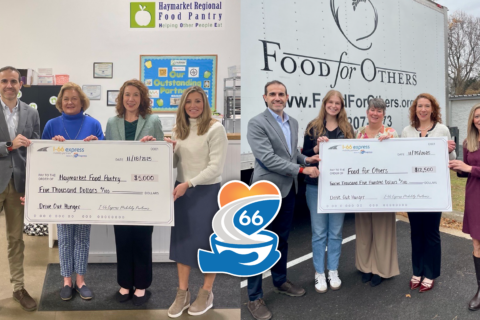Millions of Americans rely on highly trained professionals to help maintain their health and well-being, whether they live in major metropolitan areas like Washington, D.C., or rural communities across the country.
Pharmacists.
“It could be in a hospital, a community pharmacy, pharmacists that work in the pharmaceutical industry or maybe in academia,” says Michael Hogue, CEO of the American Pharmacists Association. “But most of these pharmacists are providing direct patient care, day in and day out.”
Hogue says a key task for pharmacists “is really to make medicines work” for those who rely on them.
That means making sure a patient gets the right medicine at the right time, along with the right dose, regardless of where the individual accesses medicine.
But he says that’s becoming more difficult, particularly for community-based pharmacies.
“I think what Americans are realizing is that rapidly, we’re losing access to the only healthcare resource that many consumers have in their local communities,” Hogue says.
He says that’s true not only in many rural communities, but also in major cities, where many communities of color have limited options for access to a pharmacy.
“We are concerned that many of these pharmacies have some really strong headwinds, making it very difficult for them to be able to survive,” he says.
Lingering impact of the pandemic
Hogue points out that the pandemic was a major jolt to the healthcare system, in part because physician resources had to be diverted to hospitals to take care of acutely ill patients with COVID-19.
That left the local pharmacy as the only healthcare option in many communities.
“And as most all Americans know, you got all your vaccines in the pharmacy during that time frame,” Hogue says. “If you needed a test for COVID or you needed to be tested for the flu and treated, that happened in a pharmacy.”
That created a huge workload for pharmacists and pharmacies.
“So it was a pretty stressful environment for pharmacies,” Hogue says.
Congress faces critical deadline on PREP Act
During the pandemic, modifications were made to the Public Readiness and Emergency Preparedness Act, known as the PREP Act.
The changes helped pharmacies to administer vaccines, through broader authority, which in turn saved lives and prevented many more from becoming ill.
But the changes to the PREP Act are set to expire at the end of the year.
“The whole healthcare industry is on edge about this,” Hogue says.
That’s because the government allowed for various healthcare activities — including testing and treatment for not just COVID-19, but other illnesses — to be compensated for with federal funds
Hogue says that helped improve patients’ access to their health care providers, including pharmacists.
“So one of the bills that the American Pharmacists Association is championing would actually provide some permanency, particularly for our most vulnerable patients — our senior citizens, our Medicare beneficiaries,” he says.
Call to action in lame-duck session
Hogue says it’s imperative that Congress take up the legislation during the lame-duck session.
He says a failure to act will have extensive ramifications for patients and the healthcare system.
Hogue’s association is trying to make sure that HR 1770 — the Equitable Community Access to Pharmacist Services Act — gets marked up by the House Ways and Means Committee, which is chaired by Rep. Jason Smith, R-MO.
“This bill is critical to ensure that Medicare beneficiaries continue to have access to the pharmacists care services for testing and treating for respiratory disorders and for immunizations,” Hogue says, adding that those on Medicare are often the most vulnerable in terms of access to care.
Hogue says pharmacists have shown they are well-trained and capable of providing services.
“If Congress doesn’t act now, Medicare beneficiaries will be denied important care, and we will see consumers in rural communities who will perish,” he says.
The legislation has bipartisan support, and Hogue remains hopeful it will pass.
He concludes by pointing to the case of his own parents, who live in a rural community of southern Illinois and have to drive more than an hour to see their family physician.
Both are in their 80s and have a pharmacy that’s a 10-minute drive from their home.
“When mom and dad think they might have the flu or COVID, doesn’t it make a lot more sense that they drive 10 minutes to their pharmacy?” Hogue says, noting the pharmacist can always refer them to a physician if they need follow-up care.
“I can’t imagine that there wouldn’t be members of Congress who’d have the same situation that I have in my own family,” Hogue says.







